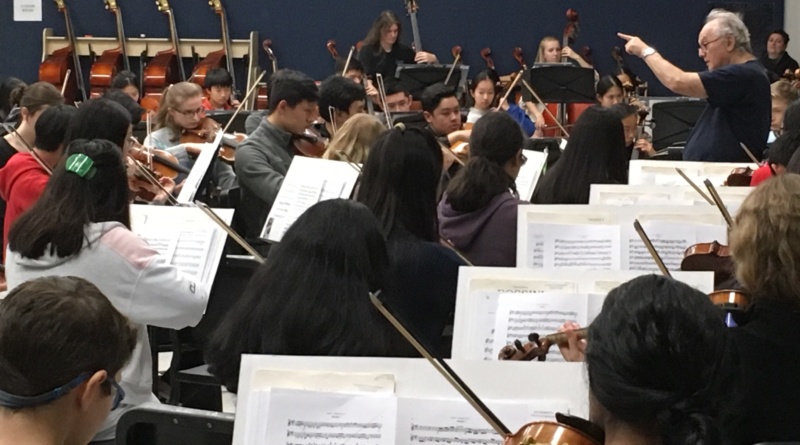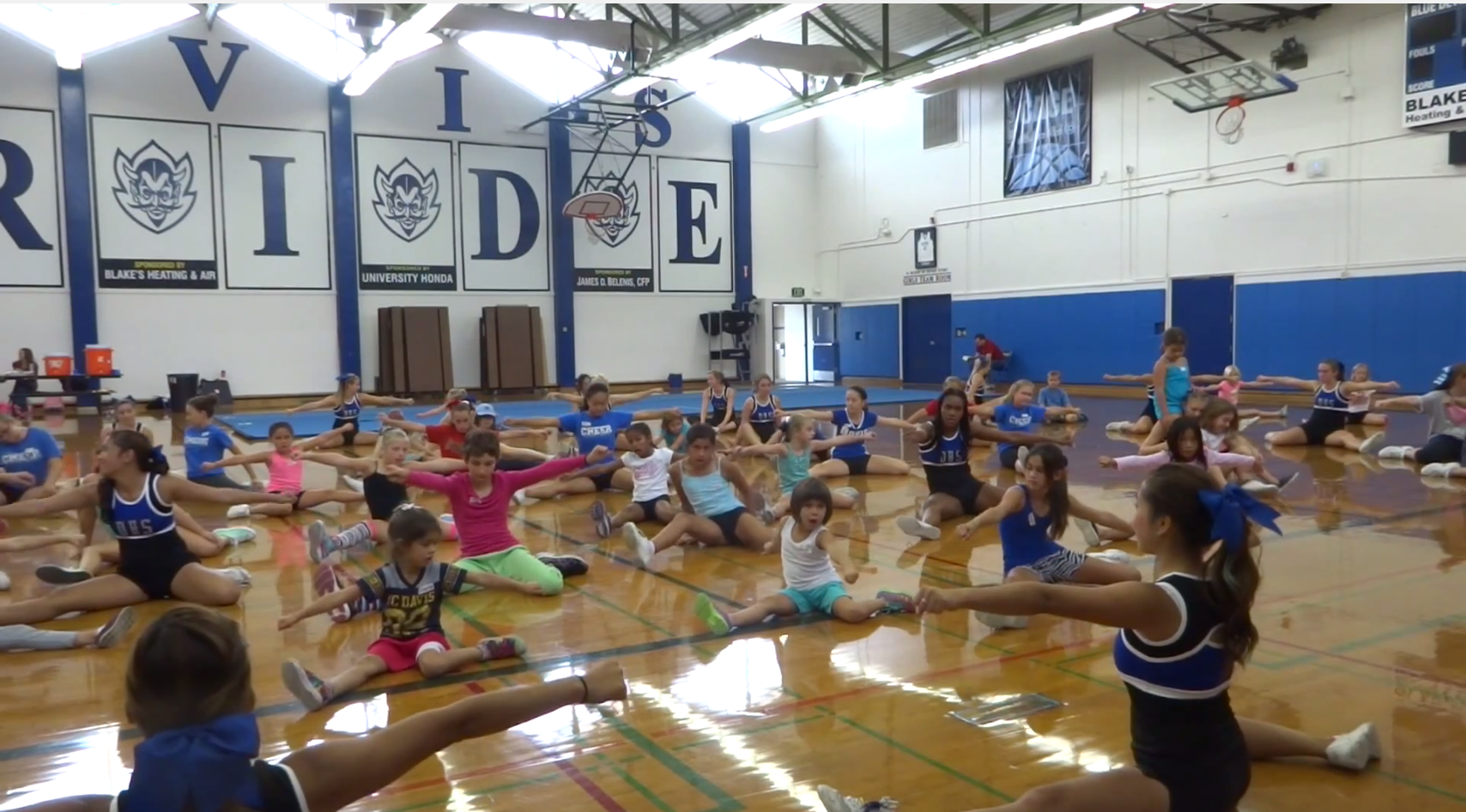PROFILE: Michael Neumann’s journey with music
PHOTO: Michael Neumann, at the head of the orchestra on the right hand side, conducts the Sacramento Youth Symphony at a weekly rehearsal.
By Leah Rosenheim,
BlueDevilHUB.com Staff–
At 6:40 p.m., the band room at Rosemont High School, where the Sacramento Youth Symphony rehearses, is filled with a cacophony of sound: booming tubas, blaring trumpets, trilling flutes and scraping strings. But at 6:45, the cacophony ceases when Michael Neumann strides to the podium at the head of the orchestra to begin the practice.
From the age of 12, Neumann has been captivated by conducting. Neumann explained that throughout high school, “I pestered the [orchestra] teacher to allow me to take the class and wave my hands around a little.”
The “pestering” paid off; at 15, Neumann conducted in public for the first time with his high school orchestra. It was a success.
At the end of the concert, Neumann said that the superintendent of music in the public schools of San Francisco came up to him and “asked me how long I had been studying conducting.”
“That was the precise moment when I realized, maybe I have something here,” Neumann said.
Inspired to pursue a career in music, Neumann earned a bachelor’s degree in violin performance and a master’s degree in orchestral conducting from the University of Cincinnati. After conducting the Birmingham Symphony in Alabama for several years, Neumann moved back to the west coast and conducted the Sacramento Symphony and the Sacramento Youth Symphony.
This is Neumann’s 40th and final year conducting the Sacramento Youth Symphony top-level orchestra, Premier. The Sacramento Youth Symphony attracts young musicians from all over California, including many students from Davis High.
Neumann believes conducting is composed of a technical and an emotional side. At a basic level, conductors must indicate with their gestures the tempo and beats of the music. The motions made by the baton–down, left, right, up, and more–mark the beats in each measure.
Conductors also must communicate the style and dynamics of the music: sharp movements with the baton mean short, crisp notes, while fluid motions communicate more lyrical playing.
Once the technical aspects are mastered, conducting becomes “more expressing the emotion” of the music, Neumann said.
Conducting is similar to reading a book. “You don’t want to just say the words, but what is the meaning behind the words?” Neumann said.
“After Mr. Neumann explains the nuances and the history behind [the music], you can get a deeper meaning,” said Emily Jao, a senior at DHS and violist in Premier.
When the orchestra “can get through the technical aspects and get into feeling the music [I feel] like I’m in a different world,” Neumann said.
Musicians in the orchestra also lose themselves in the music. “When executed properly, you can really feel the composer’s intent and emotions put into the music,” said violist Kai Keltner, a sophomore at DHS.
For some players, playing in such a high-level orchestra can be frightening at first. During the first practice of the year, Karen Meng, a violinist, said “I was really nervous and really scared.” But Meng has overcome her initial nerves and is playing a concerto on piano at the upcoming concert.
Another big part of Neumann’s job is planning concerts. While most of the Premier concerts feature standard repertoire of professional orchestras, Neumann also plans thematic concerts to honor, acknowledge and give thanks to a variety of different groups.
Neumann explains that these concerts are his way of trying to “bring peace through my art, through music.”
Neumann works closely with Robert Vann, the general manager of the Sacramento Youth Symphony.
“The day of the special [thematic concert] is a culmination of many hundreds of hours of planning and coordination,” Vann said. “When the orchestra starts playing, I am immediately stricken with feelings of pride and accomplishment.”



